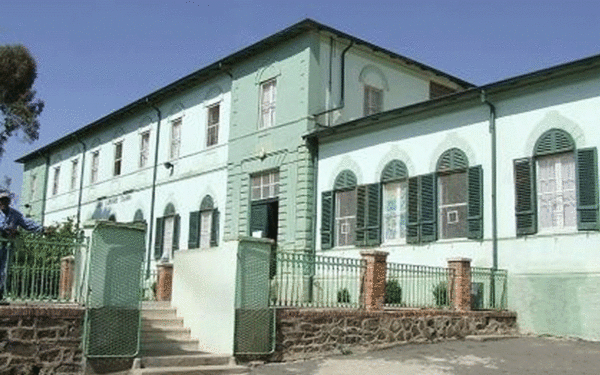 Special for Africa ExPress
Special for Africa ExPress
Cornelia I. Toelgyes
23 September 2020
The historic Italian school of Asmara , established in 1903, has temporarily closed its doors. This can be read in a decree signed on 31 August 2020 by the chargé d’affaires of the Italian Embassy in Eritrea. The new ambassador, Marco Mancini, was appointed only a few days ago by the Council of Ministers.
Last year the institute had a thousand members, only 10 percent were Italian.
The reasons for the closure are many and the responsibility is certainly to be attributed to both governments, the onset of the crisis began several years ago. And it got worse with the cut in expenses for Italian schools abroad (DL 64/2017 and DM 2051/2018), thus preventing the use of alternates. In this way it was necessary to resort to the constant recruitment of local teachers; often the chairs were uncovered and this obviously to the detriment of the quality of school education. Certainly Eritrea has interpreted this as a gesture of minor interest on the part of our government towards the Asmara school.

The situation further precipitated in March of this year because the school principal would not have agreed on the educational suspension, aimed at avoiding the spread of the pandemic, with the competent local authorities. The intervention of the President of the Council of Ministers, Giuseppe Conte, to the Eritrean government was useless. Asmara has not renewed the license with the consequent termination of the bilateral agreement of 2012 and has sealed the building.
The students of Italian nationality were then able to take the maturity exam regularly, something that was denied to Eritrean students, who are forced to take this test in Sawa, where they were enrolled together with their compatriots.
It is not excluded that behind all this there is also the desire to nationalize the school, as was done last year with other institutions owned by the Catholic Church in the country. On that occasion, however, the dictatorship appealed to the application of a 1995 legislation that limits the activities of religious institutions.
In the past, the most deserving Eritrean students of the Italian institute of Asmara enjoyed scholarships given by our government with the aim of contributing to the training of young Eritrean excellence. For about ten years and perhaps more, the allocation of funding for study purposes in favor of students from our former colony has become increasingly rare, to almost completely disappear. The Isaias regime is somewhat reticent in granting visas for them, since they cannot leave the country until they have finished basic military training which lasts several years. An intervention by the Italian government would have been useless, it would have been seen as interference in internal affairs.

At the beginning of the month, photos and videos were posted on social networks framing young people in the capital Asmara as they are loaded onto buses without a mask, headed for the Sawa training camp in the west of the country. Nothing has changed since the 2018 peace treaty signed with Ethiopia, the archenemy of all time.
As every year, the regime forces thousands of young and very young to finish the last year of secondary school in the notorious Sawa military camp, where boys and girls, in addition to studying, undergo hard military training in often prohibitive climatic conditions.
If life is hard for boys in this hell , we can only imagine what it is for girls. And in this period, no measures are applied to stem the spread of the virus: the dormitories are overcrowded, no social distancing and health care is lacking, as reported by the Human Rigts Watch Organization in a recent article.
The impact with Sawa is terrible for everyone; in Eritrea no young person can dream of his own future, everything is written from birth. The deserving students, after finishing secondary school, can attend college (military university) in the same facility and are later sent to work for the government in various ministries. The others, on the other hand, are forced to attend professional courses, which almost always means military service.
Christian Solidarity Worldwide (CSW), a human rights organization specializing in freedom of worship, said the Eritrean regime recently released 27 Eritrean Pentecostal Christians. Some of them had been lying in Mai Serwa prison, not far from the capital Asmara, for 16 years without any trial.
According to some CSW sources, it seems that the release of the 27 (19 men and 8 women) is somehow connected with Covid-19; they are among the first group of prisoners released out of a total of 54 that the asmarine authorities intend to release soon. Another group of 22 (mostly women and minors) belonging to the Methodist church were reportedly released in July. Their names have not been disclosed so far.
However, to prevent them from leaving the country, these people are only free on bail; they had to pledge their property documents or those of a guarantor. Since 2002, the government has recognized only Sunni Islam, the Eritrean Orthodox Church, the Roman Catholic and Lutheran Churches.
Even today, the dictatorship holds tens of thousands of its citizens in more or less 300 rotten prisons scattered throughout the country. Most of these unfortunates are incarcerated for daring to criticize the regime; extrajudicial detentions, enforced disappearances continue and family members often have no news from their relatives for years.
And if on the one hand Eritrea seems to have released some detainees to avoid the spread of the pandemic – official data do not report deaths linked to Covid-19, only 364 infected, among these 305 recovered – the regime continues the forced enlistment of Young people.

